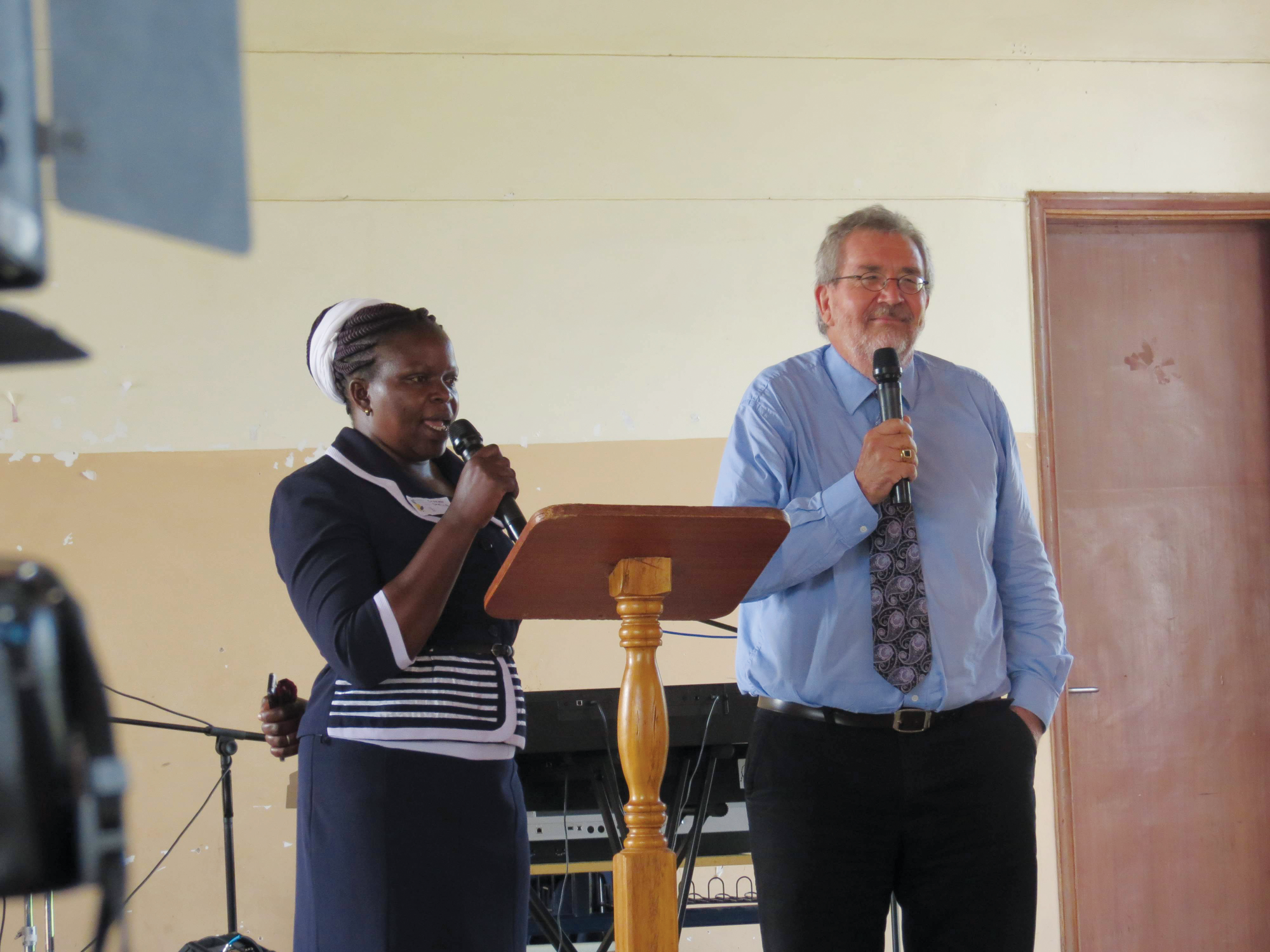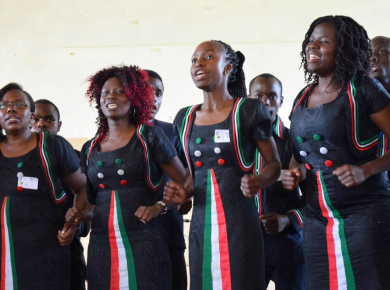Posted: November 15, 2018
Three reasons the Holy Spirit is relevant to the church today
 Fifty days after Passover, the Jewish community gathered in Jerusalem for the Festival of Weeks. At the same time, the followers of Jesus gathered in a room awaiting the promise of the Holy Spirit.
Fifty days after Passover, the Jewish community gathered in Jerusalem for the Festival of Weeks. At the same time, the followers of Jesus gathered in a room awaiting the promise of the Holy Spirit.
As they were waiting, “suddenly from heaven there came a sound like the rush of a violent wind and it filled the entire house where they were sitting… All of them were filled with the Holy Spirit and began to speak in other languages” (Acts 2:2,4). Jesus’ followers miraculously start to speak languages they hadn’t known before.
Soon, the news of the followers speaking in different languages spreads throughout Jerusalem. People are bewildered, amazed or skeptical.
Then Peter – the same Peter who 50 days earlier had denied any associations with Jesus – stands and preaches his first sermon. Now, with the empowerment of the Holy Spirit, Peter stands in front of thousands who had crucified Jesus. The crowd that could not stand Jesus 50 days ago now attentively listens to a sermon in defence of Jesus.
Reportedly, 3 000 people believed in Jesus and were added to the church that day.
Peter interprets the events of that morning in light of a prophecy of the prophet Joel.
In Joel 2:28–29, God promised to pour out God’s Spirit on all flesh. God promised to empower all people to exercise divine power. And this prophecy was fulfilled on the day of Pentecost. That is how the day of Pentecost became the day of the birth of the church.
Two millennia later, why does it matter to us that the first Christians were filled with the Holy Spirit? What could the church learn from the events of Pentecost?
1. The Holy Spirit continues to empower the church
In Acts 1:8, Jesus promised his disciples the empowerment of the Holy Spirit to witness. Before Pentecost, disciples are scared and direction-less. After, they boldly present themselves as followers of Jesus.
The empowerment they received did not end with the day. They do powerful acts of healing, raising the dead, and witnessing in the Sanhedrin. They live with boldness, most to the point of execution.
The Holy Spirit continues to empower the church today. Christian institutions work to tackle major issues such as human trafficking, displacement, poverty and hunger, violence and war.
Individual members of the church risk their lives to live out their faith.
Greta Lindecrantz from Colorado, USA, chose jail over supporting death penalty.
Sang-Min Lee from South Korea refused to complete the government’s mandatory military service and spent 15 months in prison as a conscientious objector.
Mennonite youth from Colombia have refused to join the armed groups because they believe “it is incompatible with the teachings and examples of Jesus Christ.”
In India, believers follow Christ in the midst of growing religious intolerance and persecution.
This is possible only due to the power of the Holy Spirit.
2. The church is diverse and inclusive in nature
On the day of Pentecost, the Holy Spirit enabled the gathered believers to “declare the wonders of God” in languages they had not spoken before. This miracle symbolically reinforced the diverse nature of the church: multilingual, multiracial and multicultural.
From there onward, instead of a homogenous group of Galileans, the church became a community of people of all nations, drawn together by love for Christ.
In his sermon, Peter quotes the prophet Joel to interpret the events of that morning:
“In the last days it will be, God declares,
that I will pour out my Spirit on all flesh,
and your sons and your daughters shall prophesy,
your young men shall see visions,
and your old men will dream dreams.
Even upon my slaves, both men and women,
in those days, I will pour out my Spirit;
and they shall prophesy” (Acts 2:17–18).
The day of Pentecost was a historic event because God fulfilled the prophecy given hundreds of years ago.
In the days of the Old Testament, the Spirit was almost always poured out only on prophets, priests and kings. This changed with the day of Pentecost. All believers were empowered by the Holy Spirit regardless of their age, gender and economic status.
The church became a place where all people – young and old, men and women – mattered. And everyone received the power to contribute to the life and mission of the church.
3. The church displays a foretaste of the kingdom of God
Acts 2:42–47 shows what the kingdom of God looks like on earth.
The first church lived together in one accord. They fellowship with each other; they devote themselves to the teachings of the apostles. They pray and break bread together. They sold their property and possessions to give to anyone who had need. The Lord blessed them by adding “to their number those who were being saved” (Acts 2:47).

Characteristics of the kingdom were present in the first church.
There was unity in midst of diversity; there was satisfaction – a desire to fellowship and learn instead of dividing and dominating; There was sharing and caring for each other with glad and sincere hearts, with no place for greed; and a desire to praise God.
The first church is a template for us to follow. It is a model for us to examine how the characteristics of the kingdom are present among us.
The table before us
John Driver, in his book, Life together in the Spirit, gives us a beautiful picture of a “table of fraternal communion.”
Through MWC, a table of fraternal communion is set before us. At this table are people from around the world, sharing stories of the work of Holy Spirit – empowering the church; declaring the wonders of God; and uniting and including us in the body of Christ.
As we partake of these stories, may we be inspired to have faith in the empowerment of the Holy Spirit and submit ourselves to the work of the Holy Spirit in and through us.
The problems glaring at our generation call for an active intervention by the church. It is not possible to tackle these problems by mere human efforts. The Holy Spirit’s empowerment and a spirit of oneness within the Global Anabaptist Family is needed for the church to raise up a standard that bears a witness to the world; that bears the values of the kingdom.

—Elisabeth Kunjam is a member of the Mennonite Brethren church in India. She served on the Deacons Commission (2015–2018).
She spoke at Renewal 2027 – The Holy Spirit Transforming Us – in Kisumu, Kenya, 21 April 2018. This paper been adapted from her presentation.
This article first appeared in Courier/Correo/Courrier October 2018.

Comments: